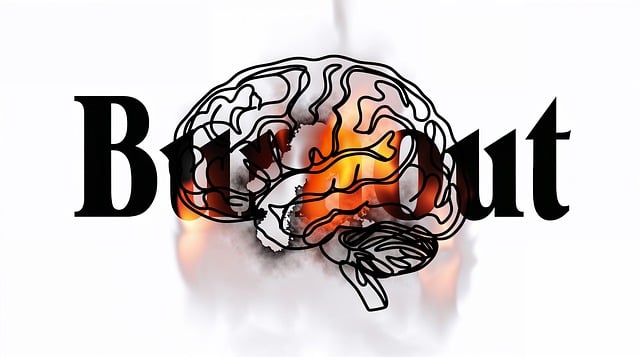Crisis Intervention Teams (CITs) in Colorado Springs are essential for handling domestic violence cases, focusing on immediate assistance, victim safety, and emotional support. Trained to recognize distress signals, they employ effective conflict resolution strategies and stress reduction techniques. CITs empower victims and responders, enhance therapist skills through specialized training, and promote evidence-based practices tailored to complex trauma. This multifaceted approach includes communication training, de-escalation, empathetic listening, self-care, and policy advocacy, ensuring swift and compassionate crisis response in Colorado Springs domestic violence therapy services. By integrating these elements, CIT training fosters a culture of care and resilience within the community.
“Crisis Intervention Teams (CITs) play a pivotal role in addressing domestic violence, offering immediate support and de-escalation tactics. This article explores the significance of specialized training for professionals in Colorado Springs Domestic Violence Therapy, focusing on CIT programs’ key components and their profound impact on community safety. We’ll delve into the benefits, from enhanced crisis response to improved support systems, while also acknowledging challenges and future directions. Understanding and optimizing these training programs are essential steps towards a safer, more resilient community.”
- Understanding Crisis Intervention Teams: Their Role in Domestic Violence Situations
- The Importance of Specialized Training for Colorado Springs Domestic Violence Therapy
- Key Components of an Effective Crisis Intervention Team Training Program
- Benefits and Impact on Community Safety and Support Systems
- Challenges and Future Directions for Enhancing Crisis Response Training
Understanding Crisis Intervention Teams: Their Role in Domestic Violence Situations

Crisis Intervention Teams (CITs) play a vital role in addressing domestic violence situations, offering immediate support and resources to victims and their families. These specialized teams are designed to provide rapid response, ensuring the safety and well-being of individuals caught in high-risk domestic conflicts. In Colorado Springs, where domestic violence therapy services are readily available, CIT members are trained to recognize signs of distress and employ effective conflict resolution techniques.
The primary objective is to de-escalate intense situations, offering a calm presence that can prevent further harm. They utilize stress reduction methods to help individuals manage their emotions during crises. Moreover, these teams focus on risk management planning for mental health professionals, ensuring they have the tools to assess and mitigate potential risks associated with domestic violence cases. Through comprehensive training, CITs foster an environment of safety and support, empowering both victims and those who respond to such emergencies.
The Importance of Specialized Training for Colorado Springs Domestic Violence Therapy

In Colorado Springs, addressing domestic violence requires specialized training for therapists who play a crucial role in supporting survivors. The landscape of therapy is ever-evolving, and keeping up with evidence-based practices is essential, especially when dealing with sensitive issues like domestic violence. This type of trauma often necessitates unique approaches, making comprehensive training indispensable for healthcare providers. By equipping therapists with the right tools, they can offer tailored care to those who have experienced abuse, fostering healing and recovery.
Specialized programs focus on various aspects, including mindfulness meditation as a technique to enhance self-awareness and manage stress, conflict resolution skills to navigate challenging situations, and healthcare provider cultural competency training to address diverse client needs. These initiatives ensure that Colorado Springs Domestic Violence Therapy is effective and accessible, catering to the specific requirements of survivors’ journeys towards healing and safety.
Key Components of an Effective Crisis Intervention Team Training Program

An effective crisis intervention team (CIT) training program is a multifaceted approach designed to equip individuals with the skills needed to respond to crises sensitively, effectively, and compassionately. The core components of such programs include robust training in communication strategies tailored for high-stress situations, ensuring that team members learn de-escalation techniques and empathetic listening skills. Beyond this, self-care practices are paramount; CIT trainees must be taught the importance of managing their own emotional well-being to avoid burnout, especially when dealing with traumatic incidents.
The program should also delve into broader aspects such as mental health policy analysis and advocacy, providing insights into systemic changes that can prevent crises from escalating. This includes understanding local resources for mental health support and domestic violence therapy in Colorado Springs, fostering a culture of care and resilience within the community. By integrating these diverse elements, CIT training becomes not just a response mechanism but an agent for positive change.
Benefits and Impact on Community Safety and Support Systems

Crisis intervention team training programs play a pivotal role in enhancing community safety and strengthening support systems. By equipping individuals with the necessary skills to handle high-stress situations, these initiatives ensure swift and effective responses to crises, be it domestic violence or other forms of emergency. In Colorado Springs, for instance, where domestic violence therapy is a pressing issue, well-trained crisis intervention teams can significantly reduce the impact on victims and their families by providing immediate, compassionate, and professional assistance.
The benefits extend beyond immediate incident management. Participants in these programs gain valuable social skills training, which enables them to better navigate challenging interactions and de-escalate conflicts. Moreover, successful implementation of community outreach program initiatives allows for early intervention, preventing escalation and fostering a culture of support and resilience. Incorporating self-care practices within the training further ensures that team members can maintain their own well-being, thereby enhancing their ability to help others effectively over the long term.
Challenges and Future Directions for Enhancing Crisis Response Training

Crisis intervention team training programs face several challenges in effectively preparing professionals to handle crises. One significant hurdle is keeping up with the evolving nature of crisis scenarios, which demand a dynamic and adaptable approach. As societal issues such as domestic violence continue to impact communities, including Colorado Springs Domestic Violence Therapy areas, training must incorporate these realities to ensure practitioners are equipped for real-world challenges.
Looking ahead, future directions for enhancing crisis response training should focus on integrating mental wellness, resilience building, and emotional intelligence skills into the curriculum. Promoting these aspects can empower team members to provide more compassionate and effective support during crises. By embracing innovative teaching methods and staying responsive to emerging trends, crisis intervention training programs can better serve individuals in need, fostering safer and healthier communities.
Crisis intervention team (CIT) training programs play a pivotal role in enhancing community safety and support systems, especially in high-risk areas like Colorado Springs. By equipping professionals with specialized skills, these programs ensure effective response to domestic violence situations, fostering an environment that prioritizes prevention and early intervention. Through continuous evaluation and future enhancements, the impact of CIT training can be further maximized, ultimately strengthening local efforts in addressing domestic violence and promoting community resilience.













